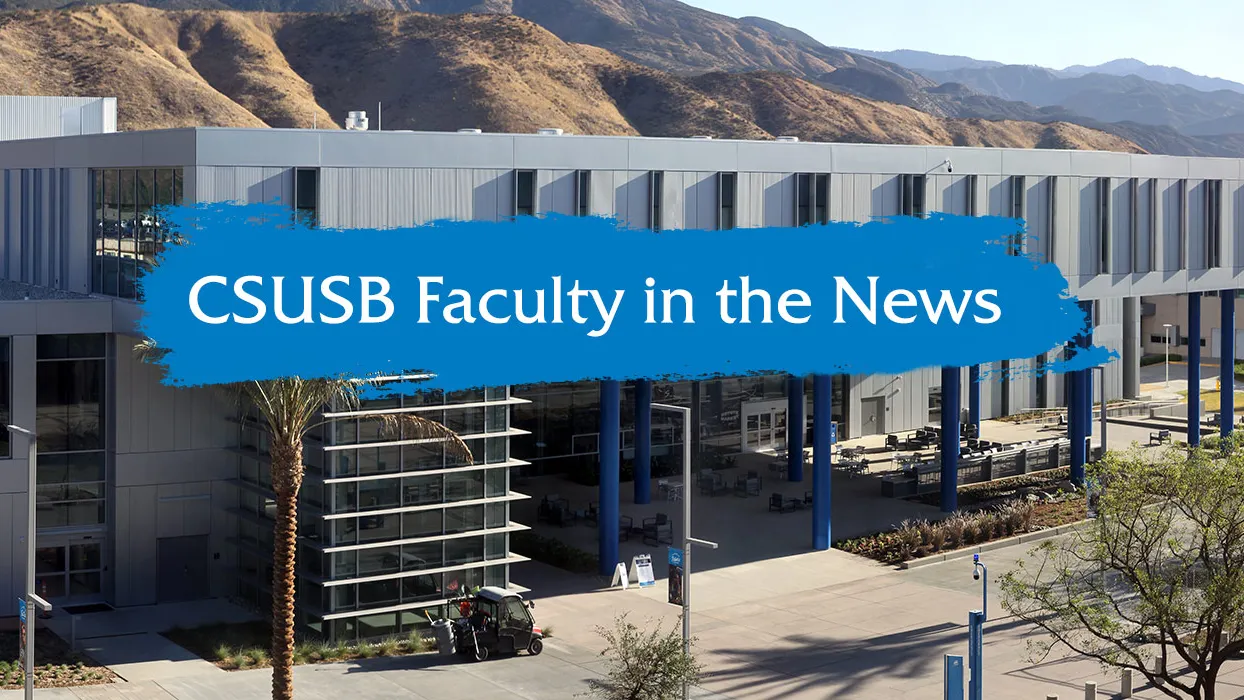NOTE: Faculty, if you are interviewed and quoted by news media, or if your work has been cited, and you have an online link to the article or video, please let us know. Contact us at news@csusb.edu.
BHM: Black history parade, campus events
Precinct Reporter
Feb. 2, 2023
Included in an article about the region’s celebration of Black History Month: “Marc Robinson (CSUSB assistant professor of history) said that one of his favorite events this year happens to be the one he is moderating (on Feb. 10), the film ‘The First Rainbow Coalition’ on the Black Panther Party chapter in Chicago, and their wide impact in the late 1960s. The showing unpacks the original rainbow effort, which included African Americans, Latinos, whites, who worked together to address shared grievances.”
Intersect Palm Springs exhibition 'Zombie Forest' investigates plight of Joshua trees
The Desert Sun
Feb. 1, 2023
Focusing on the plight of the Joshua trees, "Investigations: Zombie Forest," presented by artist, CSUSB professor of art, emerita, and activist Sant Khalsa, and Lancaster Museum of Art and History Director Andi Campognone, will showcase 30 artworks by 16 artists, all related to the plight of Joshua trees in the desert ecosystem. The exhibit will be on display Feb. 9-12 at the Palm Springs Convention Center.
"Joshua trees are our canary in the coal mine," Khalsa said. "This is the environment many of us choose to live in, and if it's not a suitable habitat for Joshua trees, what about all the other species that choose to live here? It's bringing attention not just to the plight of the Joshua tree, but the plight all of us are living with."
It’s Not Me, It’s You: Self-Interest, Social Affinity, and Support for Redistribution in Latin America
Latin American Politics and Society
Fabian Borges, associate professor of political science, published a paper that examined the redistribution of wealth and the role of social affinity in developing countries in Latin America. “Specifically, people in more culturally divided countries are less supportive of redistribution,” the abstract reads. “This relationship is strongest among low-income individuals, who are more likely to support redistribution than richer people in countries with low levels of diversity, but no more likely and, by some measures, less likely to support redistribution where diversity is highest. Economic distance between groups also matters. Support for redistribution increases when middle-class incomes are closer to those of the poor than the rich. Support declines as the middle class pulls ahead of the poor.”
5 times the ‘Avatar’ franchise got its science right (and 5 times it didn't)
Looper
Feb. 1, 2023
The entertainment website, in an article about the science behind the science fiction of the movie franchise, “Avatar,” quoted a 2009 interview with Stuart Sumida, CSUSB professor of biology and an anatomy consultant to filmmakers, about the biology of the Na’vi, the movie’s central characters. He said that the Na’vi’s thin, 10-foot-tall frames don't offer any obvious advantages, nor do their big eyes or four fingers. The point of Na'vi bodies has to do more with exoticism and attractiveness than alien evolutionary biology.
These news clips and others may be viewed at “In the Headlines.”
